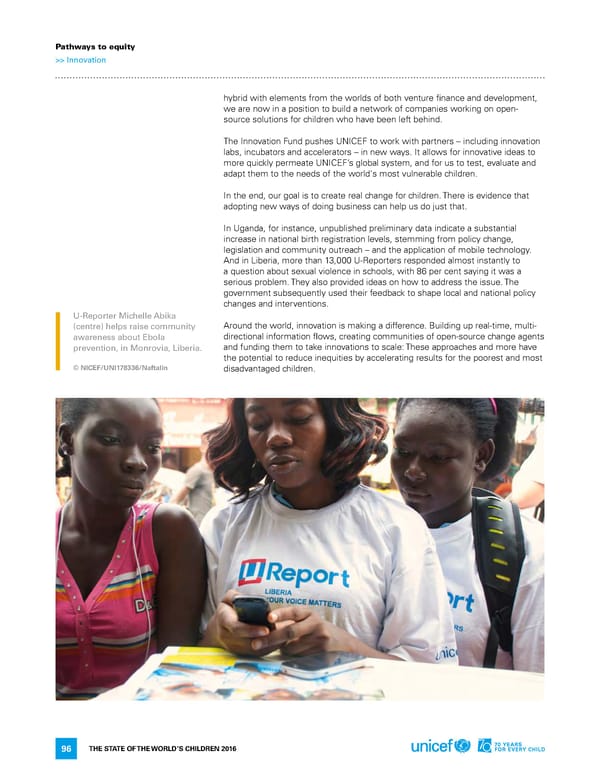Pathways to equity >> Innovation hybrid with elements from the worlds of both venture finance and development, we are now in a position to build a network of companies working on open- source solutions for children who have been left behind. The innovation fund pushes UniCef to work with partners – including innovation labs, incubators and accelerators – in new ways. it allows for innovative ideas to more quickly permeate UniCef’s global system, and for us to test, evaluate and adapt them to the needs of the world's most vulnerable children. in the end, our goal is to create real change for children. There is evidence that adopting new ways of doing business can help us do just that. in Uganda, for instance, unpublished preliminary data indicate a substantial increase in national birth registration levels, stemming from policy change, legislation and community outreach – and the application of mobile technology. and in liberia, more than 13,000 U-reporters responded almost instantly to a question about sexual violence in schools, with 86 per cent saying it was a serious problem. They also provided ideas on how to address the issue. The government subsequently used their feedback to shape local and national policy changes and interventions. U-Reporter Michelle Abika (centre) helps raise community around the world, innovation is making a difference. Building up real-time, multi- awareness about Ebola directional information flows, creating communities of open-source change agents prevention, in Monrovia, Liberia. and funding them to take innovations to scale: These approaches and more have the potential to reduce inequities by accelerating results for the poorest and most © NICEF/UNI178336/Naftalin disadvantaged children. The STaTe of The World’S Children 2016 96
 70 Years for Every Child Page 113 Page 115
70 Years for Every Child Page 113 Page 115